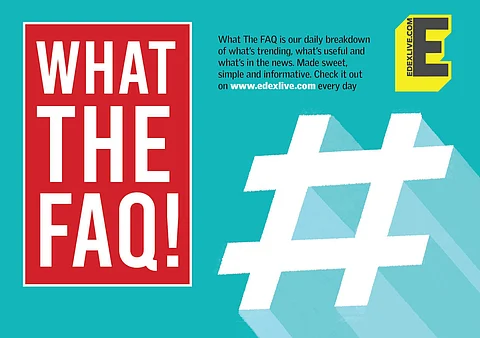

India on Tuesday formally acknowledged the occurrence of AY.1 or the Delta Plus, a Coronavirus variant that is closely related to the prevailing Delta variant. We dig in deeper to find out what the variant is, how severe it is and whether it's more transmissible.
What is the Delta Plus variant of COVID-19?
The 'delta plus' variant is a mutated version of the more aggressive B.1.617.2 strain that drove the second wave of infections in India. It is characterised by the K417N mutation in the spike protein of the SARS-CoV2 virus that causes the COVID-19 disease.
The spike protein is what helps the virus enter and infect human cells and the K417N mutation has been associated with immune escape, or evasion, that leaves it less susceptible, or more immune, to the vaccine or any form of drug therapy. The World Health Organisation (WHO), which has given it the label Delta, has categorised it as a variant of concern (VOC). It has said that it continues to observe "significantly increased transmissibility” and a “growing number of countries reporting outbreaks associated with this variant”.
Could the Delta Plus variant be a cause of concern?
The Delta Plus variant contains multiple mutations in the spike protein. At least four mutations are important. One of these is called L452R, first reported in Denmark in March last year. This mutation has been found more transmissible than wild-type strains and also been associated with reduced antibody efficacy and reduced neutralisation by vaccine sera. The mutation P681R has been associated with chemical processes that may enhance transmissibility. The D614G mutation was first documented in the US early in the pandemic, having initially circulated in Europe. “There is evidence that variants with this mutation spread more quickly,” the Centers for Disease Prevention and Control (CDC) said. Another mutation in Delta is T478K. This was present in around 65 per cent of occurrences in variant B.1.1.222, first detected in Mexico last year and associated with higher infectivity.
READ ALSO: Recruitment for clinical trial of Covaxin in 6-12 age group to start at AIIMS from June 15
What has been found in India about its severity?
There is no cause for concern as reports of the new variant are still low and there is no indication, as yet, about the severity of the disease, Anurag Agrawal, Director of Delhi's CSIR-Institute of Genomics and Integrative Biology (IGIB), said. He also said blood plasma from a number of fully vaccinated individuals would have to be tested against this variant to establish if it shows any significant level of immune escape. Immunologist Vineeta Bal said the Delta Plus variant's resistance to the monoclonal antibody cocktail is not an indication of higher virulence or severity. Bal is a guest faculty at Pune's Indian Institute of Science Education and Research. "How transmissible this new variant is will be a crucial factor to determine its rapid spread or otherwise," Vineeta Bal told the media. She added, "Thus, in individuals catching infection with the new variant, it may not be a matter worth worrying."
Are vaccines and other treatment effective against the variant?
The 'delta plus' variant is resistant to the monoclonal antibody cocktail recently authorised in India. These cocktails - Casirivimab and Imdevimab - are designed to block the virus from attaching to human cells and entering the body, and are similar to antibodies that the human body naturally produces to defend itself against the disease. Studies differ on just how effective vaccines currently in India - Covishield and Covaxin - are in protecting against the variant. The AIIMS study indicated it might not protect people even after the second dose, while a research letter published in The Lancet said Covishield (the AstraZeneca shot) provided 79 per cent protection after two doses.
